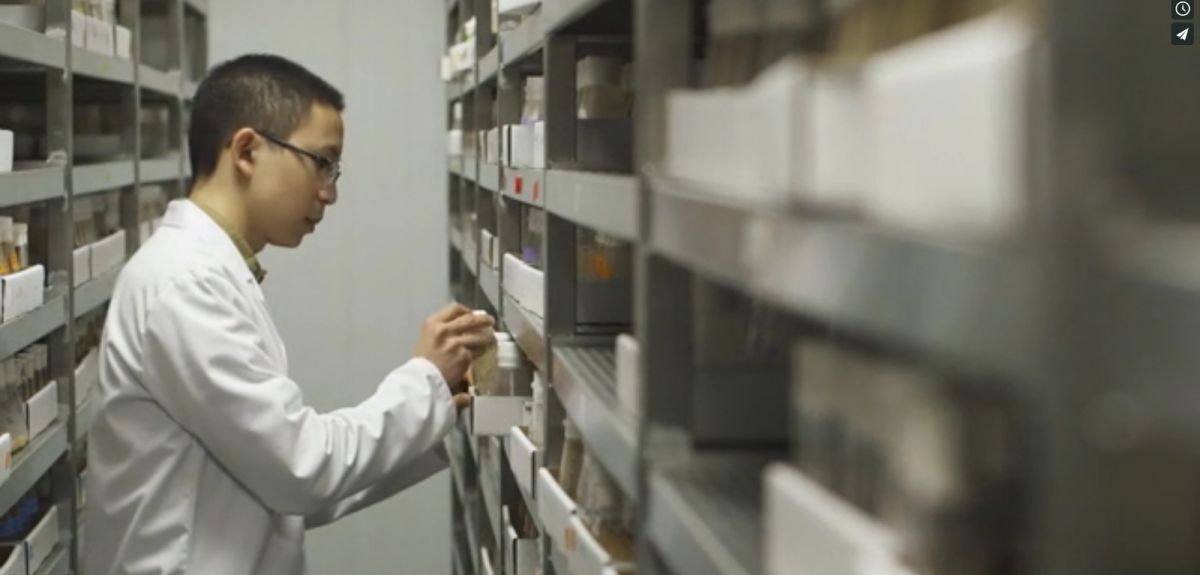
A sparse memory is a precise memory
Particular smells can be incredibly evocative and bring back very clear, vivid memories.
Maybe you find the smell of freshly baked apple pie is forever associated with warm memories of grandma's kitchen. Perhaps cut grass means long school holidays and endless football kickabouts. Or maybe catching the scent of certain medicines sees you revisit a bout of childhood illness.
What's remarkable about the power of these 'associative memories' – connecting sensory information and past experiences – is just how precise they are. How do we and other animals attach distinct memories to the millions of possible smells we encounter?
There's a clear advantage in doing so: accurately discriminating smells indicating dangers while making no mistakes in following those that are advantageous. But it's a huge information processing challenge.
Researchers at Oxford University's Centre for Neural Circuits and Behaviour have discovered that a key to forming distinct associative memories lies in how information from the senses is encoded in the brain.
Their study in fruit flies for the first time gives experimental confirmation of a theory put forward in the 1960s which suggested sensory information is encoded 'sparsely' in the brain.
The idea is that we have a huge population of nerve cells in many of our higher brain centres. But only a very few neurons fire in response to any particular sensation – be it smell, sound or vision. This would allow the brain to discriminate accurately between even very similar smells and sensations.
'This "sparse" coding means that neurons that respond to one odour don't overlap much with neurons that respond to other odours, which makes it easier for the brain to tell odours apart even if they are very similar,' explains Dr Andrew Lin, the lead author of the study published in Nature Neuroscience.
While previous studies have indicated that sensory information is encoded sparsely in the brain, there's been no evidence that this arrangement is beneficial to storing distinct memories and acting on them.
'Sparse coding has been observed in the brains of other organisms, and there are compelling theoretical arguments for its importance,' says Professor Gero Miesenböck, in whose laboratory the research was performed. 'But until now it hasn’t been possible experimentally to link sparse coding with behaviour.'
In their new work, the researchers demonstrated that if they interfered with the sparse coding in fruit flies – if they 'de-sparsened' odour representations in the neurons that store associative memories – the flies lost the ability to form distinct memories for similar smells.
The flies are normally able to discriminate between two very similar odours, learning to avoid one and head for the other. This is controlled by the neurons that store associative memories, called Kenyon cells. There's a separate nerve cell that acts as a control system to dampen down the activity the Kenyon cells, preventing too many of them from firing for any particular odour.
Dr Lin and colleagues showed that if this single nerve cell is blocked, the odour coding in Kenyon cells becomes less sparse and less able to discriminate between smells. The flies end up attaching the same memory to similar, yet different, odours.
Sparse coding does turn out to be important for sensory memories and our ability to act on them. Although the research was carried out in fruit flies, the scientists say sparse coding is likely to play a similar role in human memory.
Although sparse coding in the brain would seem to require much greater numbers of nerve cells, that cost appears to be worth it in being able to form distinct associative memories and act on them – thankfully. A life of experiences and memories is so much more full as a result.
The work of the Centre for Neural Circuits and Behaviour is funded by the Wellcome Trust and the Gatsby Charitable Foundation. This particular study was funded in addition by the Medical Research Council and the US National Institutes of Health. Dr Lin was supported by a Sir Henry Wellcome Postdoctoral Fellowship.